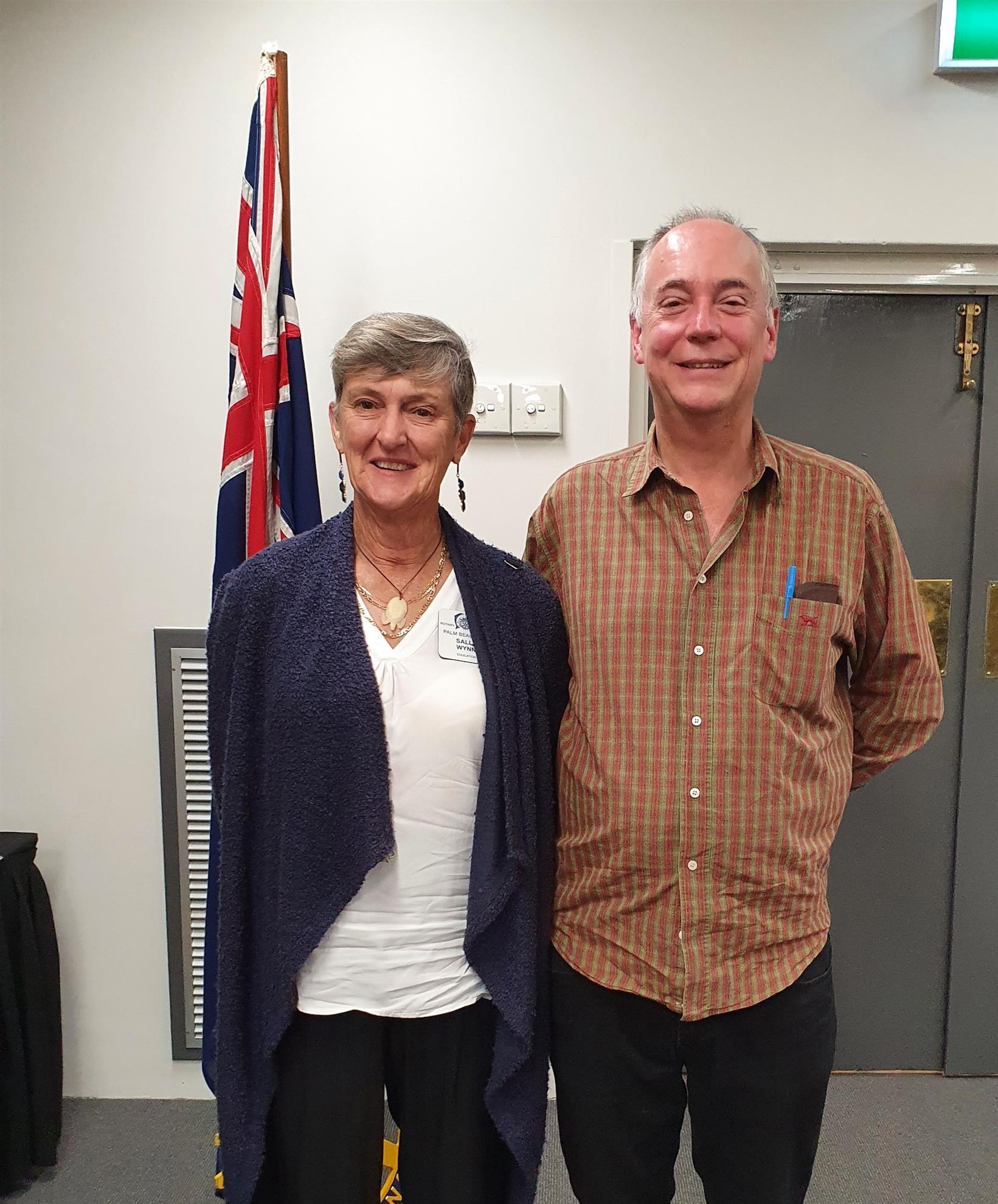
Professor George Curry
On Wednesday 29th July, Palm Beach Rotary was fortunate to have Professor George Curry, from Curtin University, visit to explain his research into coffee cultivation in Papua New Guinea.George commenced his address with a little of the prehistory of PNG, emphasising agriculture.Many of us may have been surprised to hear that edible plant species have been domesticated in PNG for at least 10,000 years. These species include banana, sugar cane, taro, breadfruit and yam and (least predictably) apples and raspberries!About 300 years ago, sweet potato was introduced and quickly became the carbohydrate staple for families within the villages, he said. Work has been done over the last several decades trying to move PNG farmers in from growing sweet potato to feed their families to growing a crop which would be more commercial, where people could make money from selling into a market place.

Professor Curry and Rotarian Sally Wynn
While women are the traditional cultivators, labourers and sellers of the sweet potato, in a culture like PNG's, they are seldom engaged in any of the males’ decision making and do not own land. Hence, women find the reward for hard and dangerous labour is very low as the men control the market income. This concept has been losing its gloss.Consequently, it has become very important in projects such as George’s, to put in place structures that will ensure all feel they benefit from their endeavours.Coffee has long been grown in Bela, a Southern Highlands province. However, after the ex-patrites left, the villagers could not manage the large plantations and the land was divided into small holdings, the link from farmers to export was lost, prices dropped and there was little incentive to improve quality.George and his team, (several of whom are masters and Phd students from PNG Research centres) are currently two years into a four-year project.They are linking up village groups in Bela, lifting technology levels (some areas still use a rough stone to remove the skins from the bean) and improving the quality of coffee beans and production by selection, pruning and fertilising.George has even got his brother involved in trying to design a very low-cost wet mill to efficiently process the coffee bean skins. They have high value as fertiliser and are currently dumped by bucket, but with a mill could be processed and fed efficiently to the gardens.Another very important aspect the project is linking the villages to the exporters and ensuring that good returns flow back to the farmers, particularly the women!Rotarian Lloyd Kerferd asked how tribal conflict — and the physical dangers it poses — affects the project.It was good to hear that where the team is running this project, the village’s main man is also the local pastor,. He presides over a peaceful and co-operative population.Professor Curry concluded by announcing that at a tastings last week, apparently a bit like a wine show, the project village’s coffee scored 84 points. This placed it into the specialty coffee category, which means it will command a premium price.I think we would all be interested to hear again, two years down the track, how everything is going.